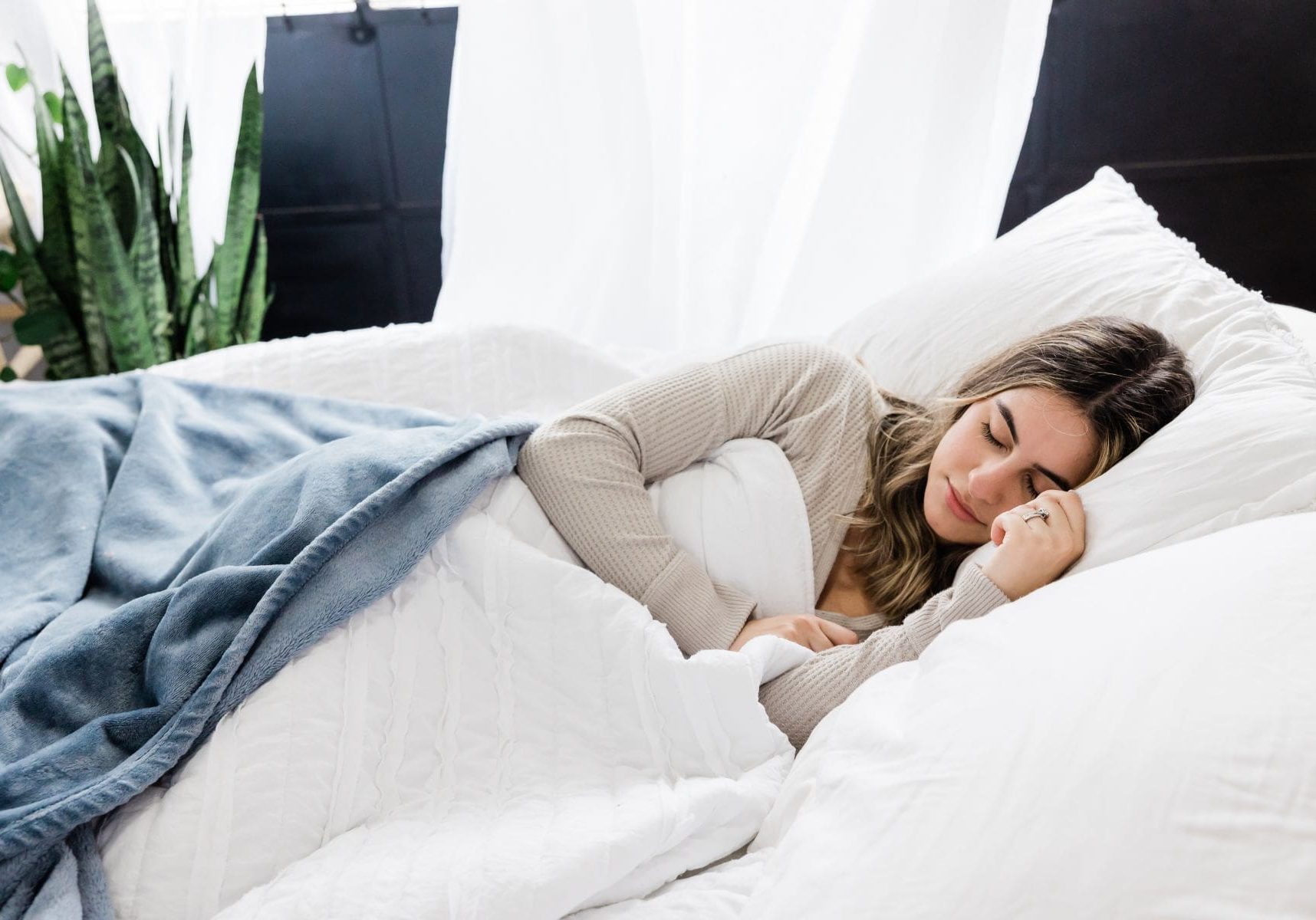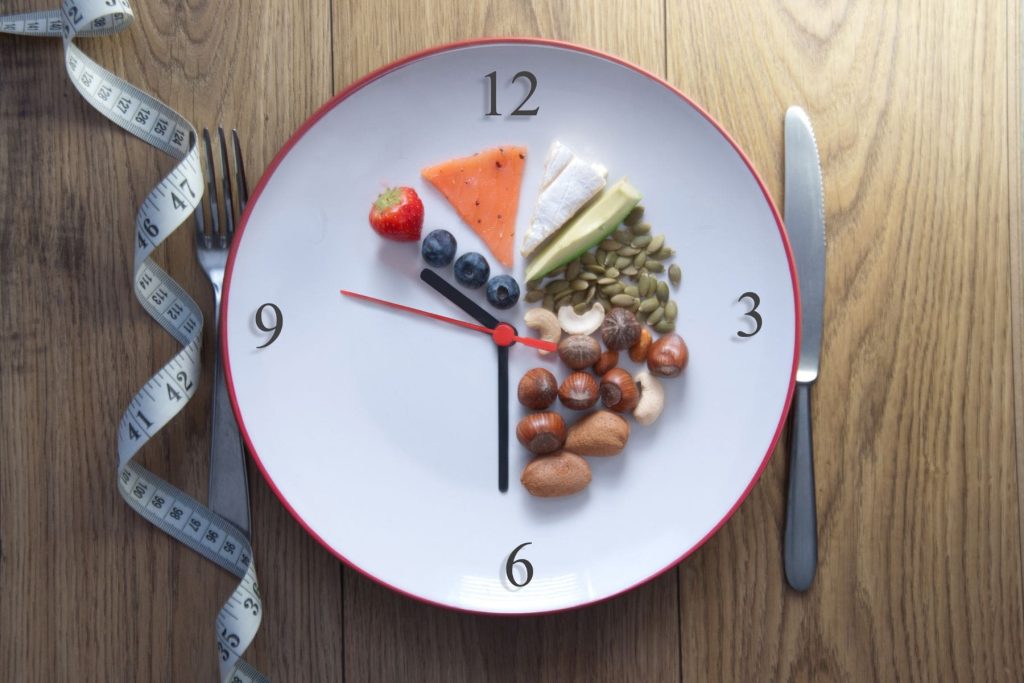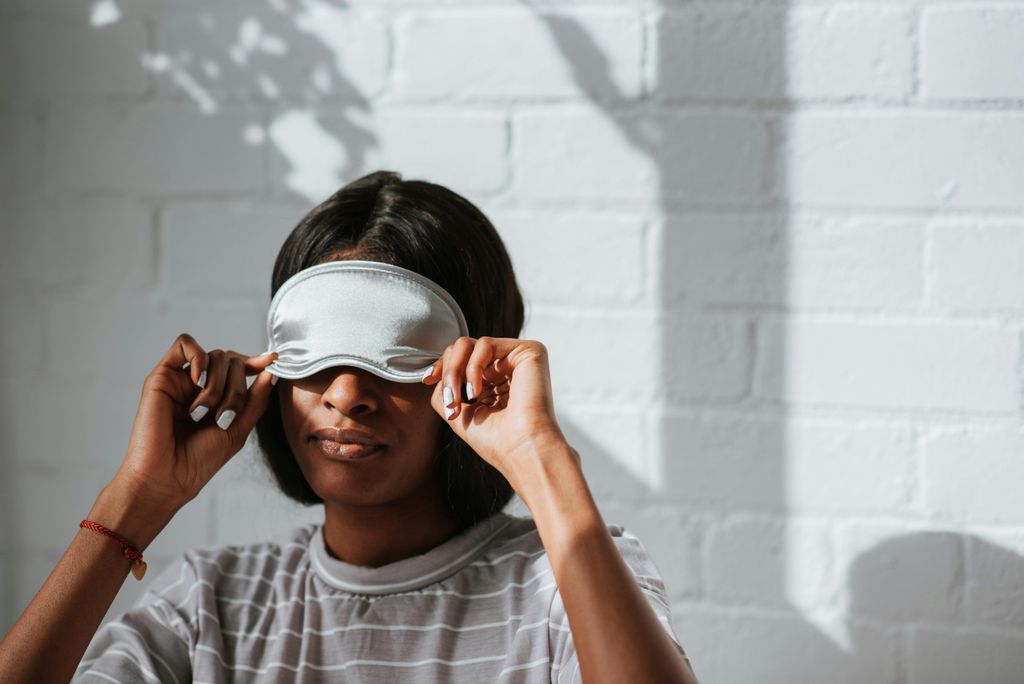How Caloric Deficit and Intermittent Fasting Can Affect Sleep or Disrupt sleep

Every year, millions of people attempt to lose weight. Whether for health, aesthetics, or a combination of both, there are many reasons why losing weight is a worthy goal. However, 97% of dieters fail, partly because their approaches can affect health and performance, especially sleep. Poor sleep makes everything worse, including causing muscle loss, increased…

Every year, millions of people attempt to lose weight. Whether for health, aesthetics, or a combination of both, there are many reasons why losing weight is a worthy goal. However, 97% of dieters fail, partly because their approaches can affect health and performance, especially sleep. Poor sleep makes everything worse, including causing muscle loss, increased appetite and cravings, and more fat gain/regain.
If your goal is to lose weight, build muscles, or maximize mental or athletic performance, we recommend protecting your sleep at all costs. That means first fixing any sleep problems you may have and working on maximizing your sleep quality before introducing caloric deficits. Then, monitor your sleep quality and avoid engaging in diets or nutritional strategies that ruin your sleep. However, if caloric deficits affect your sleep, there are ways to mitigate them.
Many bodybuilders and athletes experience sleep disruptions while cutting weight or training hard. While this article is geared toward the general population, many of the tips here will also apply to bodybuilders and athletes.
Why Do Caloric Deficit and IF Interfere with Sleep in Some People (and Not Others)?

There are a few reasons aggressive caloric deficits can interfere with sleep.
1. Adrenaline and stress hormones
When you’re in an aggressive caloric deficit or fasting, your stress hormones like adrenaline and cortisol go up. These hormones stimulate fat burning for energy and help maintain your blood sugar. The adrenaline also explains why you may feel better mental clarity, along with an energy boost, at least at first.
2. Altered circadian rhythm
Your meal timing determines your circadian rhythm. So, fasting can throw off your circadian rhythm.
Why fasting wakes you up at 2 – 3 AM and keeps you wide awake
On average, human cortisol levels peak at around 7-8 AM and gradually go down until midnight. If you fast during the day, your cortisol goes up immediately as you start to skip meals. Aside from overall increasing cortisol levels, fasting shifts the cortisol peak from morning to afternoon. This may explain why people who already have problems regulating cortisol and blood sugar may wake up early and struggle to go back to sleep.
When cortisol doesn’t peak naturally and adrenaline kicks in to raise your blood sugar, you will wake up and feel energized, sometimes even with heart flutters.
Caloric deficits and intermittent fasting work as hormesis–they introduce small doses of stress that make you stronger. However, if
- Your body is already under a lot of stress
- You somehow have reduced stress capacity
- You don’t have the right genes or physiology for fasting
Then adding fasting or aggressive caloric restriction can backfire and interfere with your sleep. Your body can handle stress like a container. When you have symptoms, multiple things accumulate, eventually overflowing and causing problems. To fix the problems, you need to lower the overall stress load to the point where your body can handle and maintain health.
Why Some People Struggle with Sleep on IF or Caloric Restriction

When it comes to why some people wreck their sleep with IF or dieting and others don’t, the following come into play:
Pre-existing stress or poor stress management
If your life/work stress load is at its max or you haven’t been sleeping well, you need to go slow. Introducing more stress with dieting or fasting could backfire if you attempt to go too long too soon. Instead, start with a moderate 10-12 hour overnight fasting goal and note if you respond well. Once you are comfortable with that routine, you can consider adding another hour each week until you hit your goal. If getting to your goal of, say, 16 hours, feels like too much, pay attention to that.
Hormone imbalances
If you’ve done a hormone panel in the past and know that your cortisol for instance was dysregulated, please go slow. There is no need to rush into IF or calorie restriction when your body is still attempting to rebalance its hormones. In fact, sometimes you’ll require less exercise and more calories for many months before your body and metabolism can tolerate IF.
Hormones, appetite, sleep, and energy balance
Another key piece to examine here is the interaction between cortisol, sleep, leptin, and ghrelin. When your cortisol stays elevated, you’ll get shorter and lower-quality sleep. This increases ghrelin and lowers leptin, and thus food cravings and overall hunger. Along with increased cravings, we find it hard to feel satisfied, in part because of decreased leptin levels.
Leptin, a hormone associated with satiety, is produced by fat cells and helps maintain energy balance by signaling that we’re full. A poor night’s sleep disrupts leptin and ghrelin. Plus, elevated cortisol adds fuel to the fire by driving us towards comfort food to cope with the stress we’re experiencing. If we’re not careful, this can become a really dangerous downward spiral toward obesity that’s reinforced by hormones and poor sleep.
High toxic load or reduced detoxification capacity
When you lose fat, your fat cells release their stored toxins. If functional lab tests such as organic acids or hair mineral analysis show high levels of fat-soluble toxins, any aggressive approaches to lose weight can backfire. This is especially the case for menopausal women since high urinary hormone disruptors can make their hot flashes worse and interfere with sleep.
If you are in this category, it’s best to lose weight slowly and work with a naturopathic doctor to support your detoxification system and prevent the toxins from affecting your health.
Epigenetics from previous starvation experiences, diet attempts, or traumas
Epigenetics refers to the impact our environments have on our gene expression. Some epigenetic marks on your genes can last years or generations. If you or your ancestors have previously been through starvation, you can have epigenetics that inhibit fat burning as a survival mechanism. These changes can be passed on or inherited by children and grandchildren leading to greater difficulty in weight loss.
Studies are also clear that traumas increase the risk of sleep problems along with dysregulation of your stress response. Adding dieting or IF, which are stressful to your body, can compound the tendency and make it much harder to sleep.
If you have had a traumatic experience with dieting or disordered eating, then fasting is contraindicated. It’s best to use a gentler approach to achieve your goals.
Hormonal and gender differences
Women also tend to do worse on IF than men, primarily because they need more stored calories to produce adequate hormones and maintain fertility. A postmenopausal woman may in theory do better on IF than a woman during her childbearing years. Be aware if you want to conceive, dieting and fasting can reduce fertility, unless you’re overweight. This scenario highlights the common clash of health goals vs aesthetic goals, especially for women who are preparing to conceive.
On the other hand, men, especially overweight/obese individuals seem to be able to do better for longer than women. They can better burn body fat for energy and maintain a regular schedule because their hormones don’t fluctuate as women’s do. And while there isn’t a ton of research on this topic, we recommend taking a conservative approach. Even better would be working with a qualified integrative physician or health coach.
Amino acid deficiencies and imbalances, and micronutrient deficiencies
Amino acid (AA) and neurotransmitter (NT) imbalances can also impact sleep quality and insomnia, especially glycine and GABA. Glycine and GABA both have inhibitory effects on the nervous system, meaning that they help produce feelings of calmness and relaxation. They do so naturally without blunting your receptors, throwing off your circadian rhythm, or causing grogginess the next morning. Therefore, it’s worth trying if you’re been struggling with sleep. These two substances in the right doses encourage faster and more restful sleep. Also, if you wake up in the middle of the night, you’ll be able to go right back to sleep.
If you want something that tastes great, and provides glycine, GABA, magnesium, and more then definitely check out the new sleep breakthrough formula. It also comes with vitamin B6, which helps produce melatonin. I’ve personally been using it the past few weeks and it really does seem to support my sleep depth and quality.
Exercise or overtraining
Exercise in any amount typically improves sleep. However, certain types of exercise tax your nervous system more than others, including
- Very heavy lifting or powerlifting, at rates of perceived exertion 9-10
- Long (over 45-minute) sessions of moderate or intense exercises, which could be cardio or lifting
- Very intense high-intensity interval training
Researchers are still trying to understand why overtraining disrupts sleep, but it’s common among athletes. The amount, frequency, and type of exercise that disrupts sleep vary for everyone. The best way to know if exercise is adding to your sleep problems is to take a week off training. If you sleep better during this week off, then it’s possible that exercise is taxing your nervous system to the point that it affects your sleep.
Stimulants and caffeine
Obviously, stimulants and caffeine affect sleep quality. Especially if you are using stimulants in order to work out because otherwise, you don’t have the natural energy for training. This is a red flag and an important sign to recognize that you need to rest and pull back on your training. If you are using caffeine, having it after 2 pm is likely going to reduce sleep quality in many cases. For those who are slow caffeine metabolizers, 12 pm is a safer cut-off to ensure quality sleep.
Many people find they sleep much better when they get off stimulants altogether. This is partly because stimulants work by stimulating your stress response system. Therefore, occasionally cycling off of these can be very beneficial.
Now that you understand what causes sleep problems from IF and caloric deficits, in the next article, Part 2, we’ll talk about ways to prevent sleep problems.
Our Nutrition Bible is coming soon.
- Peters SJ, Dyck DJ, Bonen A, Spriet LL. Effects of epinephrine on lipid metabolism in resting skeletal muscle. Am J Physiol. 1998;275(2):E300-E309.
- Kim BH, Joo Y, Kim MS, Choe HK, Tong Q, Kwon O. Effects of Intermittent Fasting on the Circulating Levels and Circadian Rhythms of Hormones. Endocrinol Metab (Seoul). 2021;36(4):745-756.
- Dickmeis T. Glucocorticoids and the circadian clock. J Endocrinol. 2009;200(1):3-22.
- Chao AM, Jastreboff AM, White MA, Grilo CM, Sinha R. Stress, cortisol, and other appetite-related hormones: Prospective prediction of 6-month changes in food cravings and weight. Obesity. 2017;25(4):713-720.
- Jansen A, Lyche JL, Polder A, Aaseth J, Skaug MA. Increased blood levels of persistent organic pollutants (POP) in obese individuals after weight loss-A review. J Toxicol Environ Health B Crit Rev. 2017;20(1):22-37.
- Ziv-Gal A, Smith RL, Gallicchio L, Miller SR, Zacur HA, Flaws JA. The Midlife Women’s Health Study – a study protocol of a longitudinal prospective study on predictors of menopausal hot flashes. Womens Midlife Health. 2017;3:4.
- King SE, Skinner MK. Epigenetic Transgenerational Inheritance of Obesity Susceptibility. Trends Endocrinol Metab. 2020;31(7):478-494.
- Hall Brown TS, Akeeb A, Mellman TA. The Role of Trauma Type in the Risk for Insomnia. J Clin Sleep Med. 2015;11(7):735-739.
- Karin O, Raz M, Tendler A, et al. A new model for the HPA axis explains dysregulation of stress hormones on the timescale of weeks. Mol Syst Biol. 2020;16(7):e9510.
- Lastella M, Vincent GE, Duffield R, et al. Can Sleep Be Used as an Indicator of Overreaching and Overtraining in Athletes? Front Physiol. 2018;9:436.




